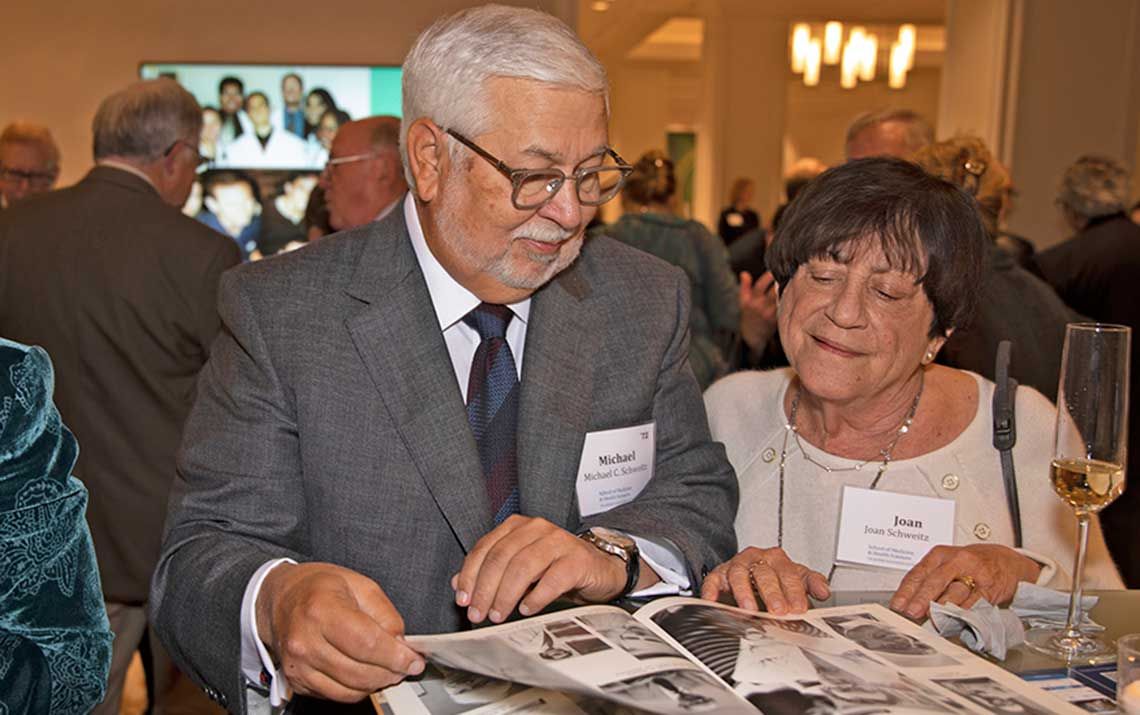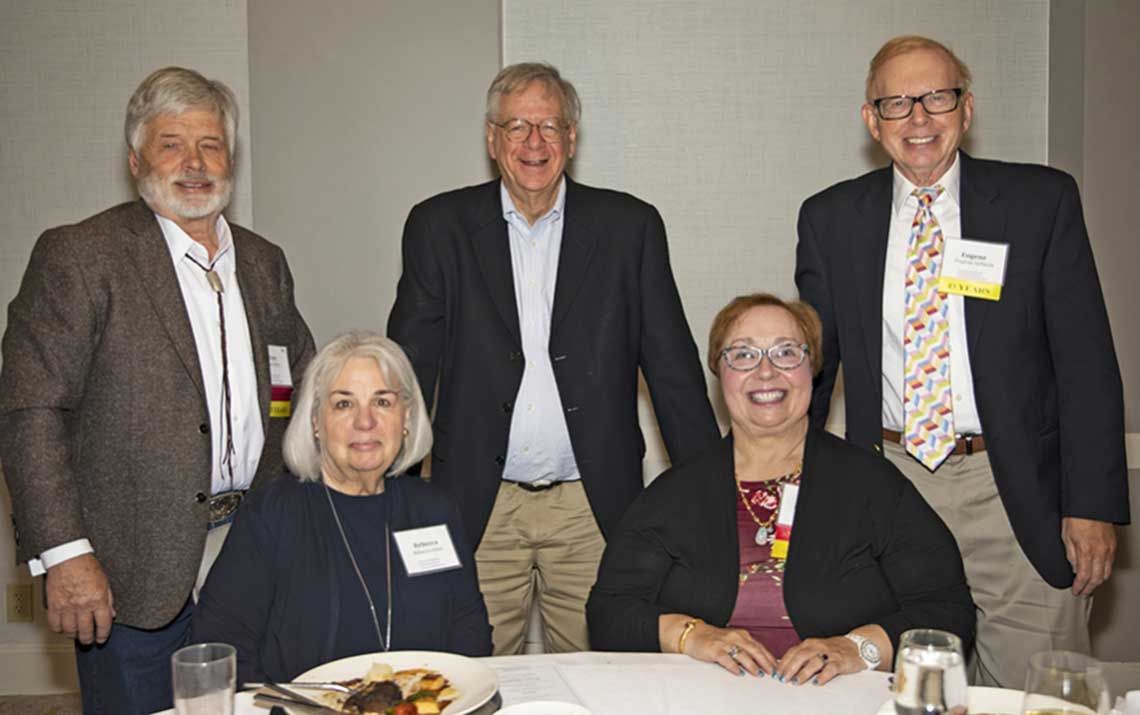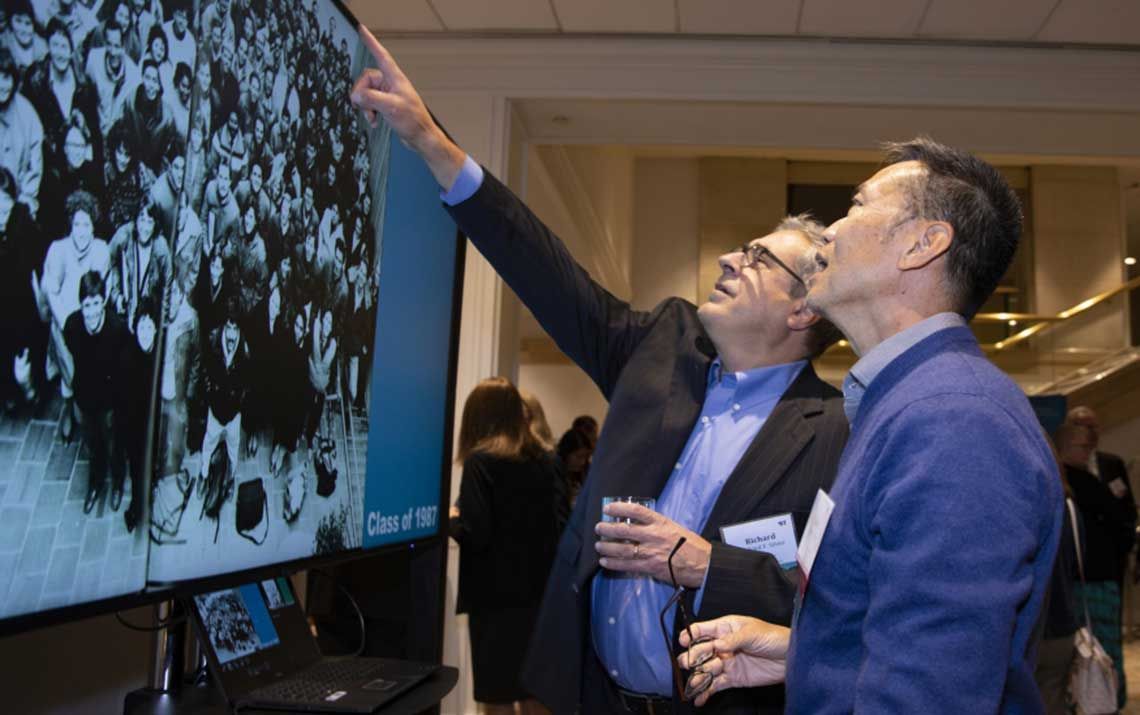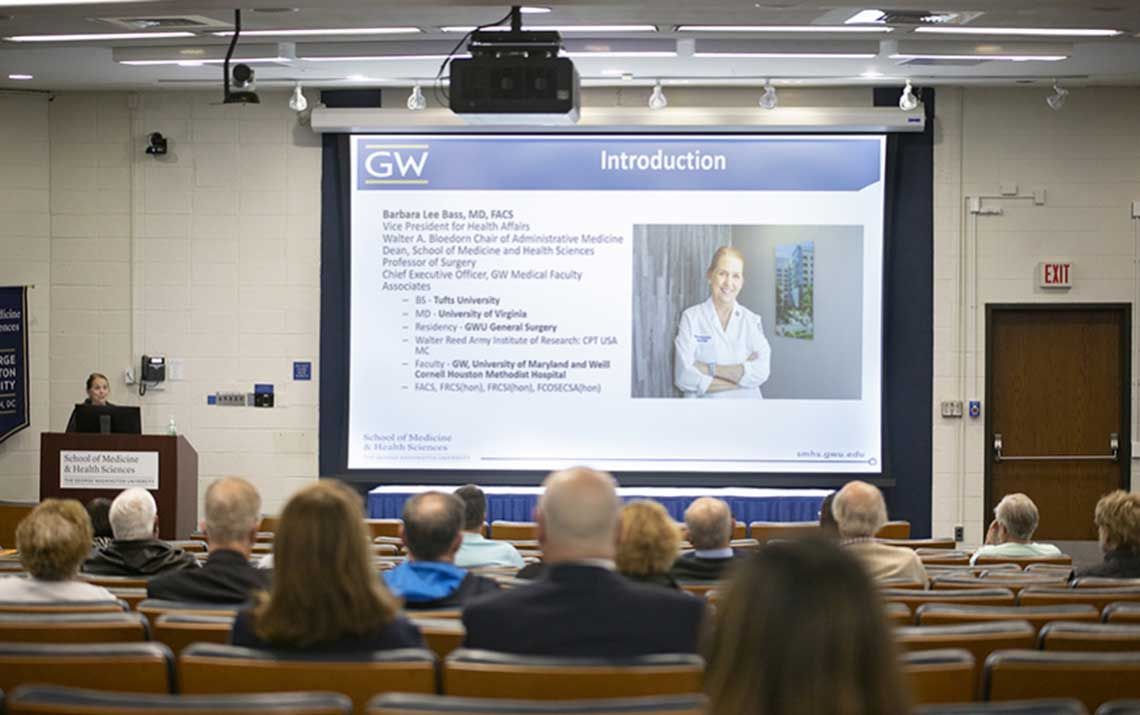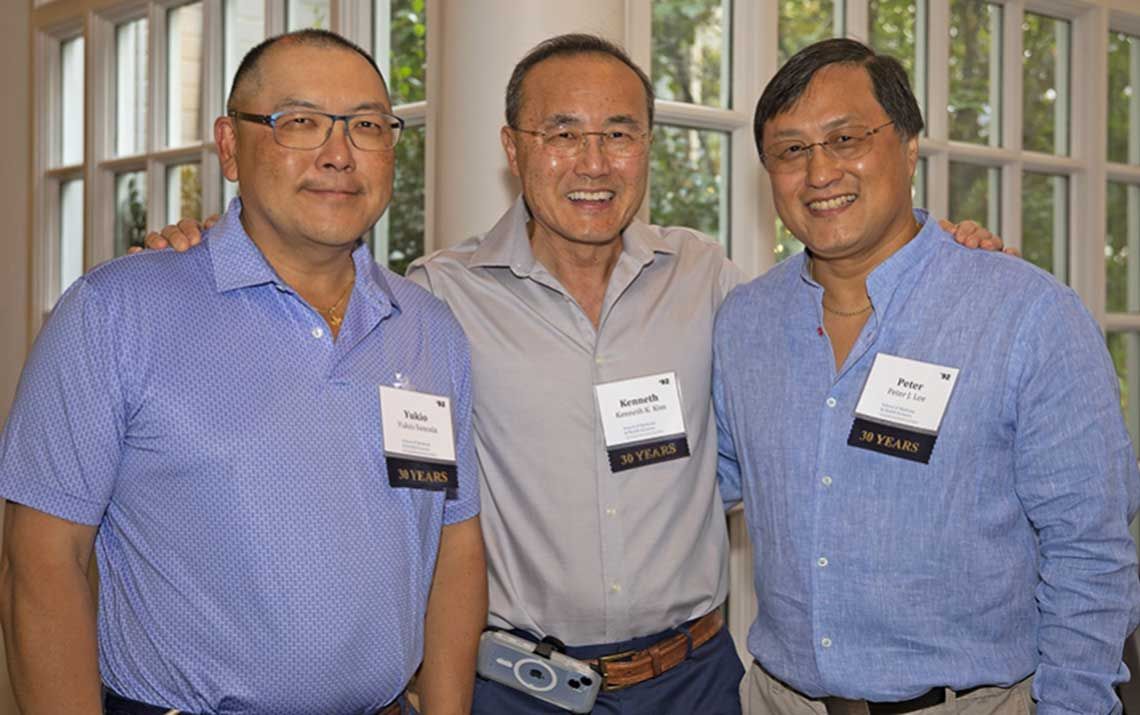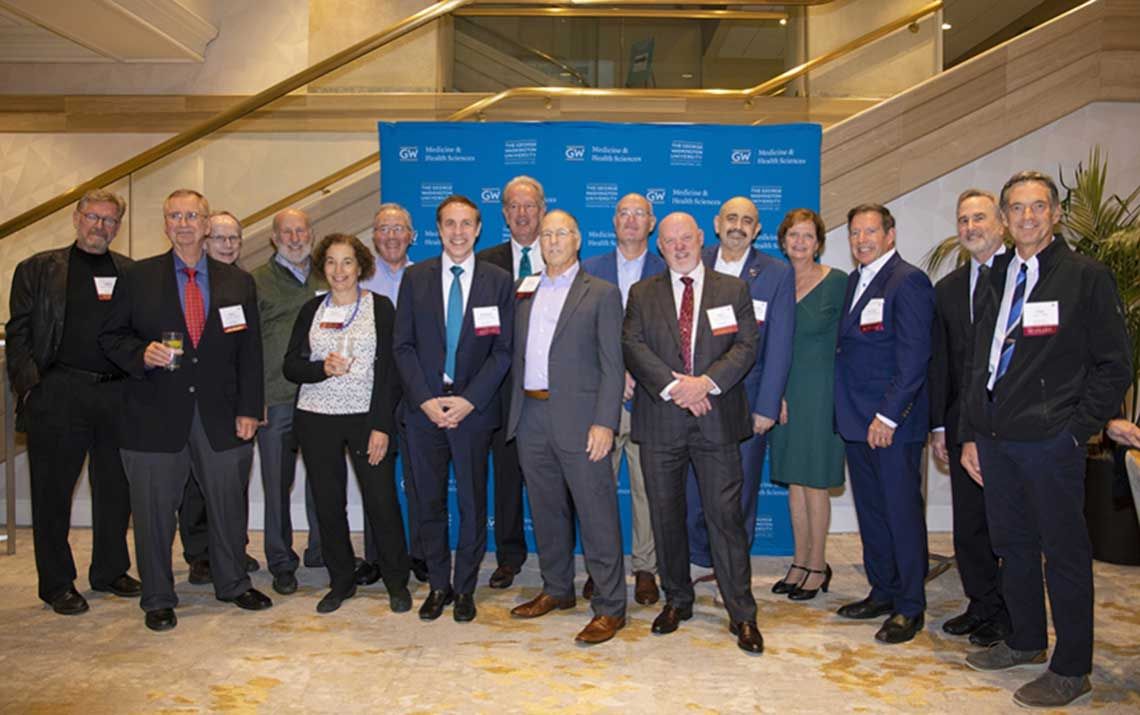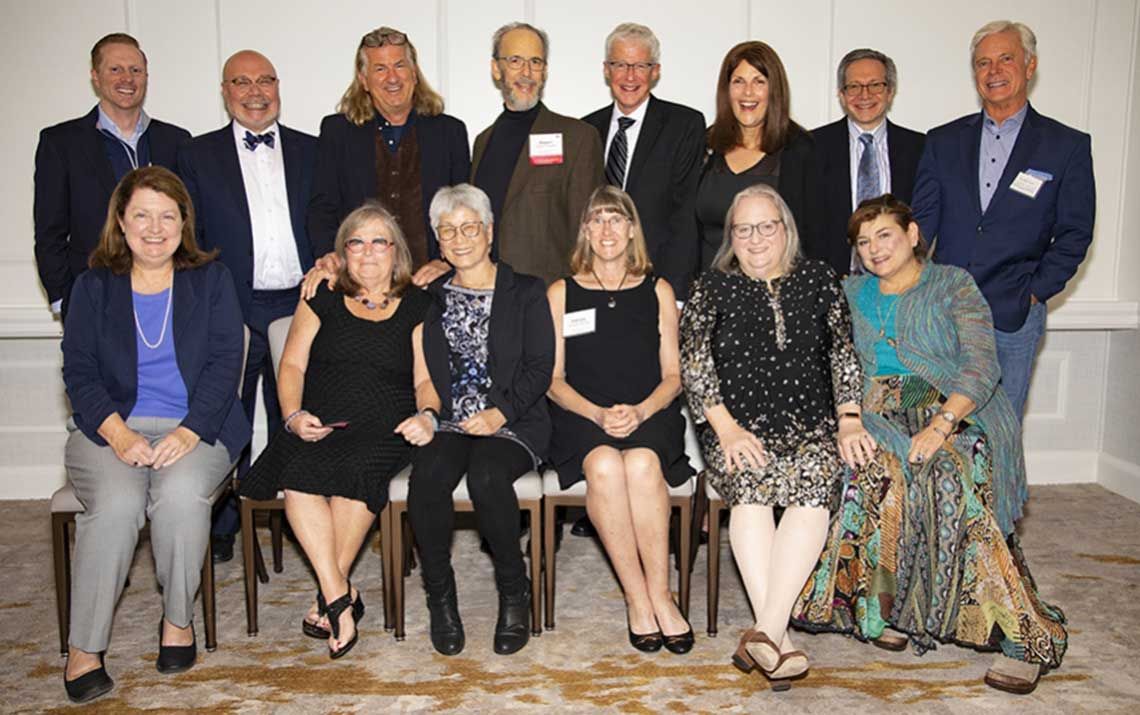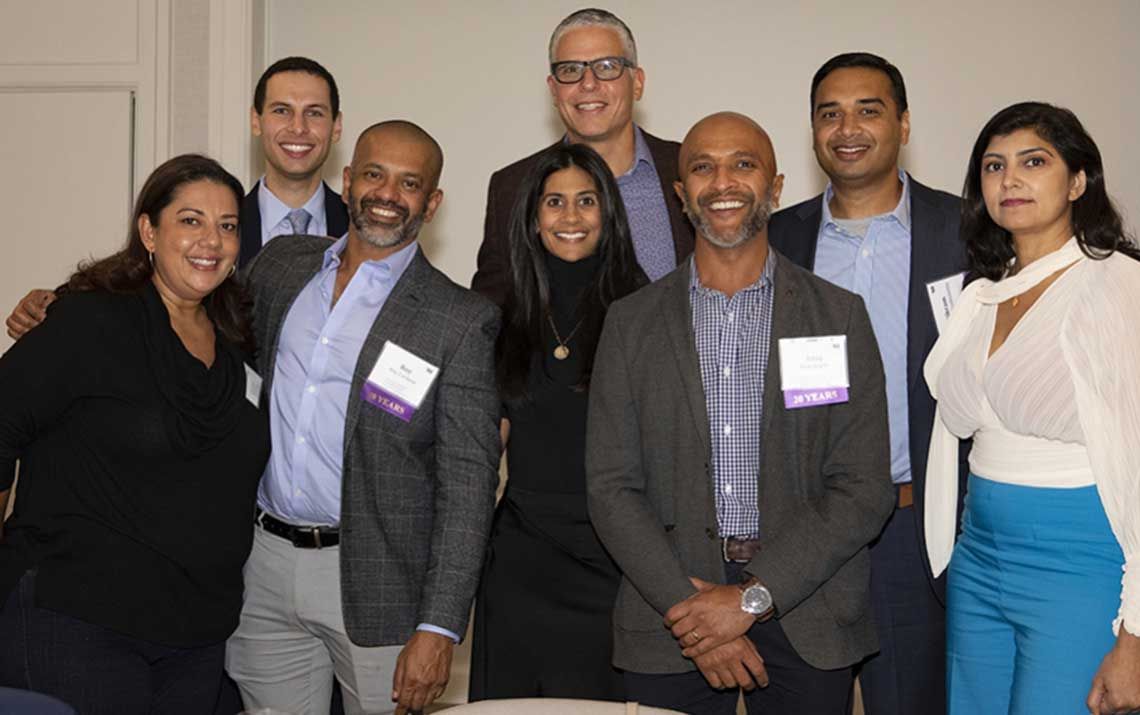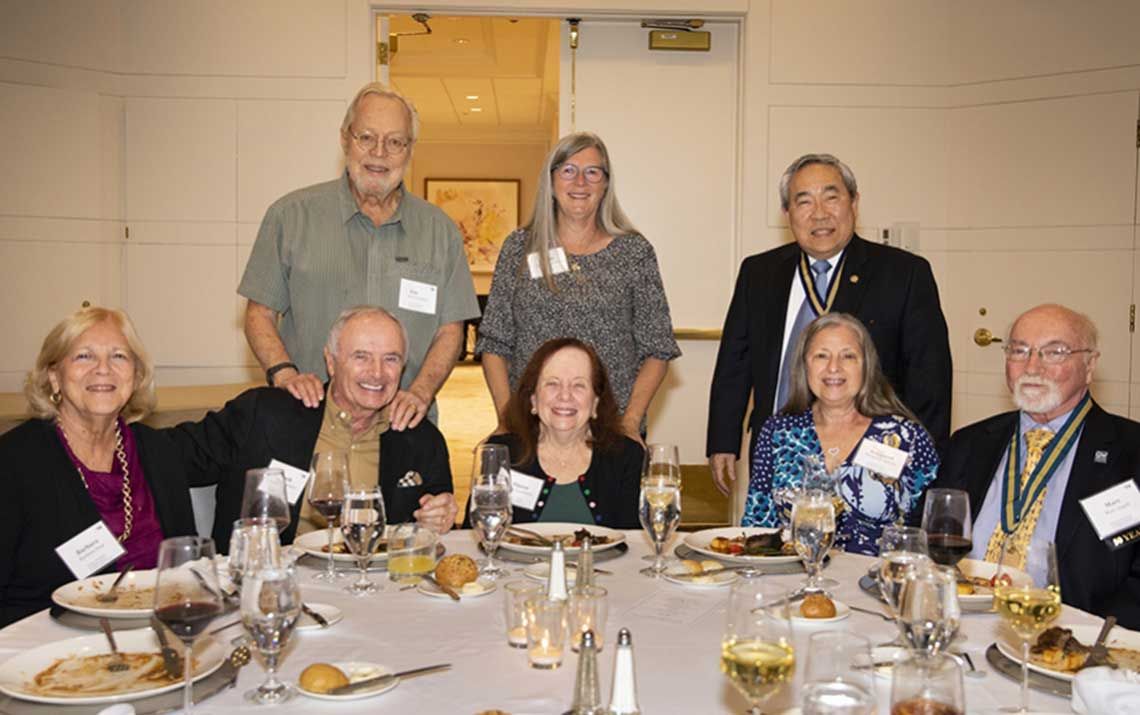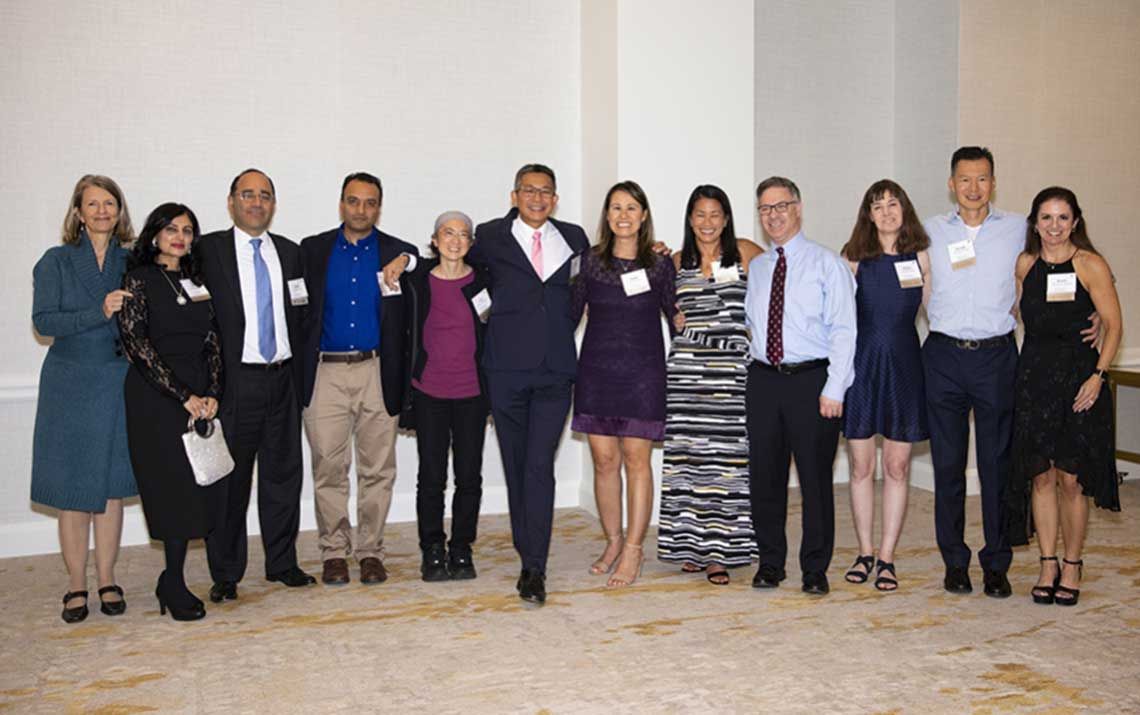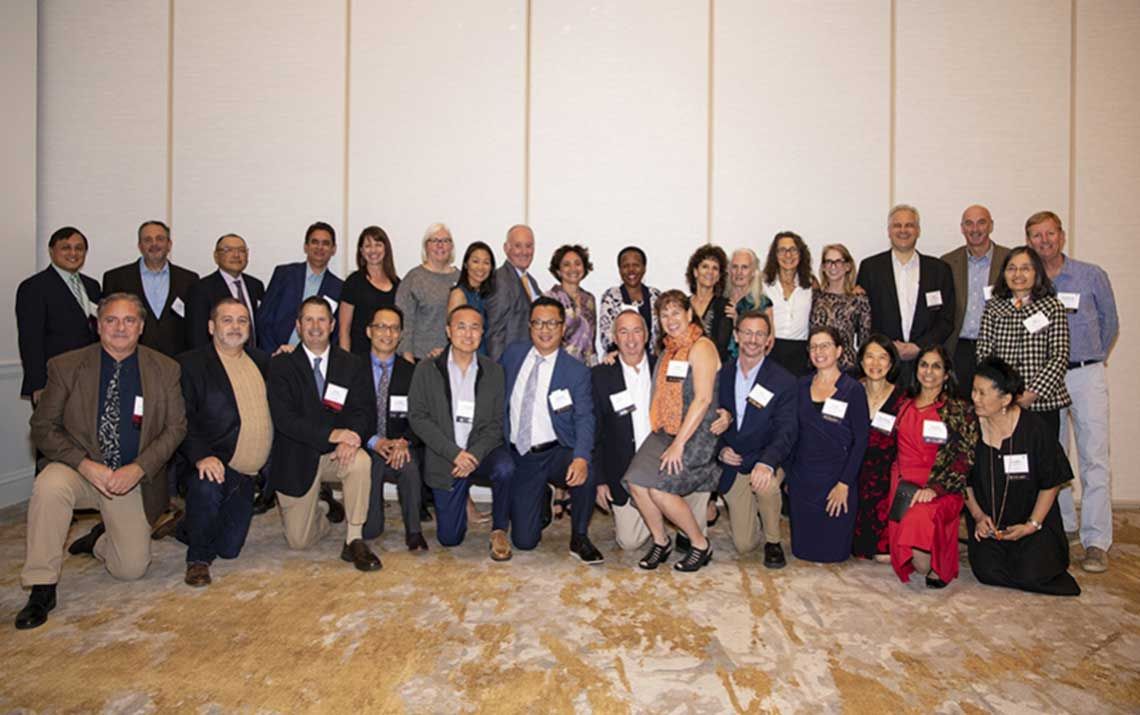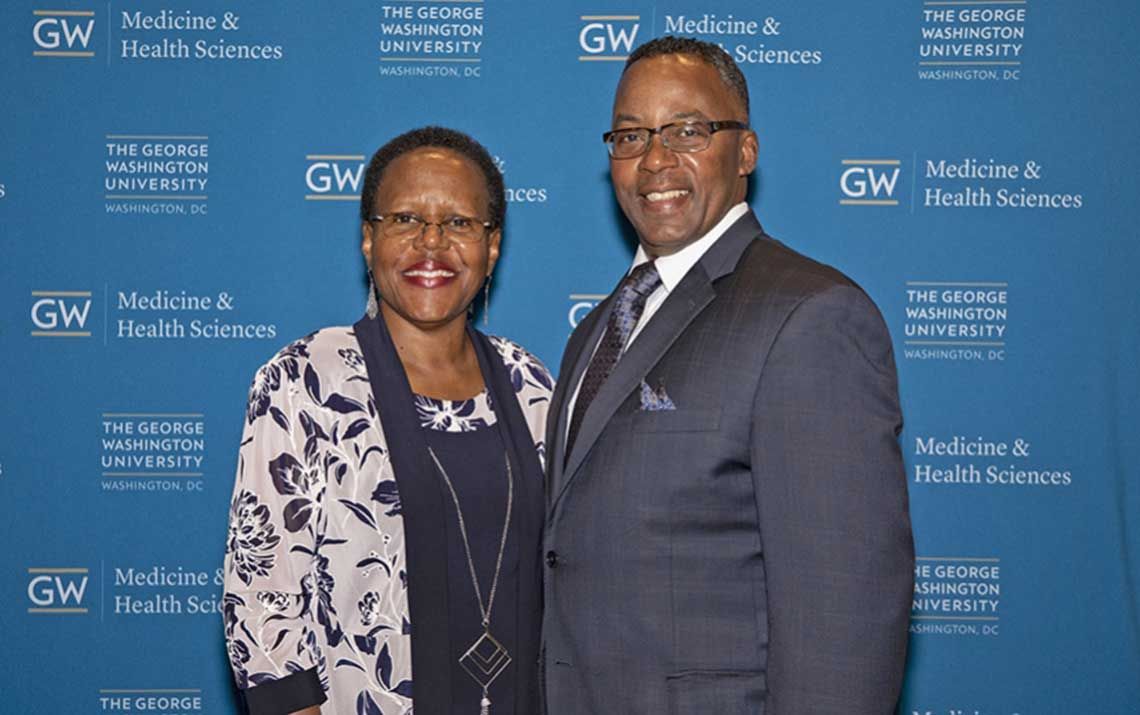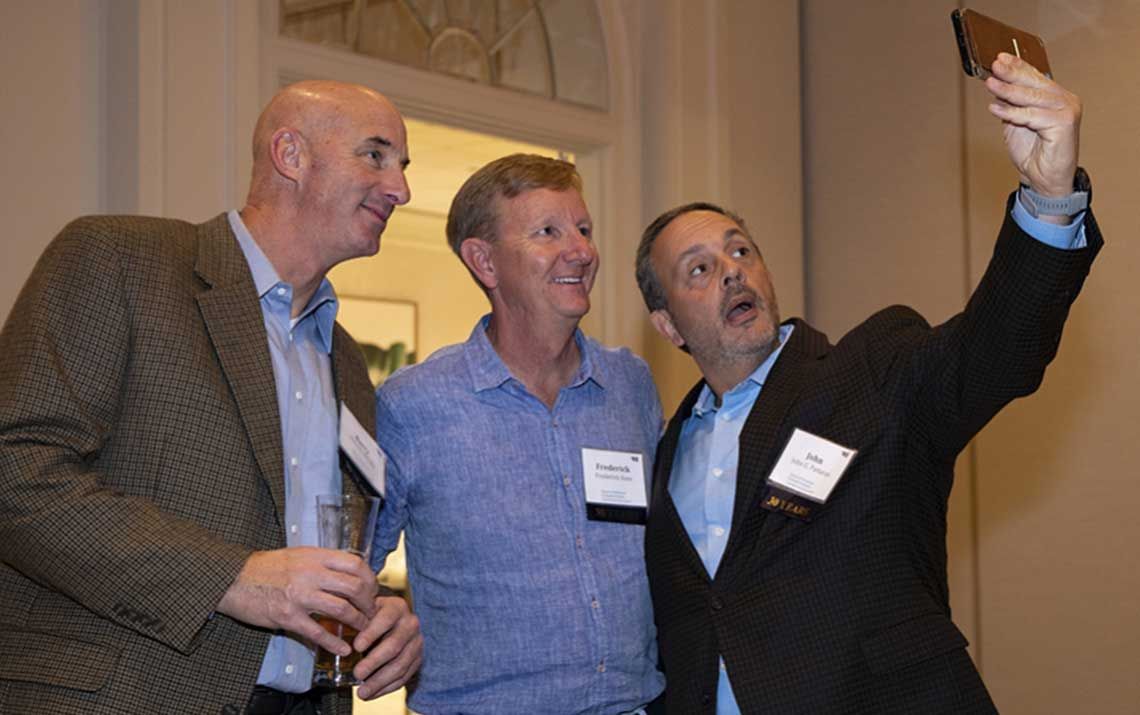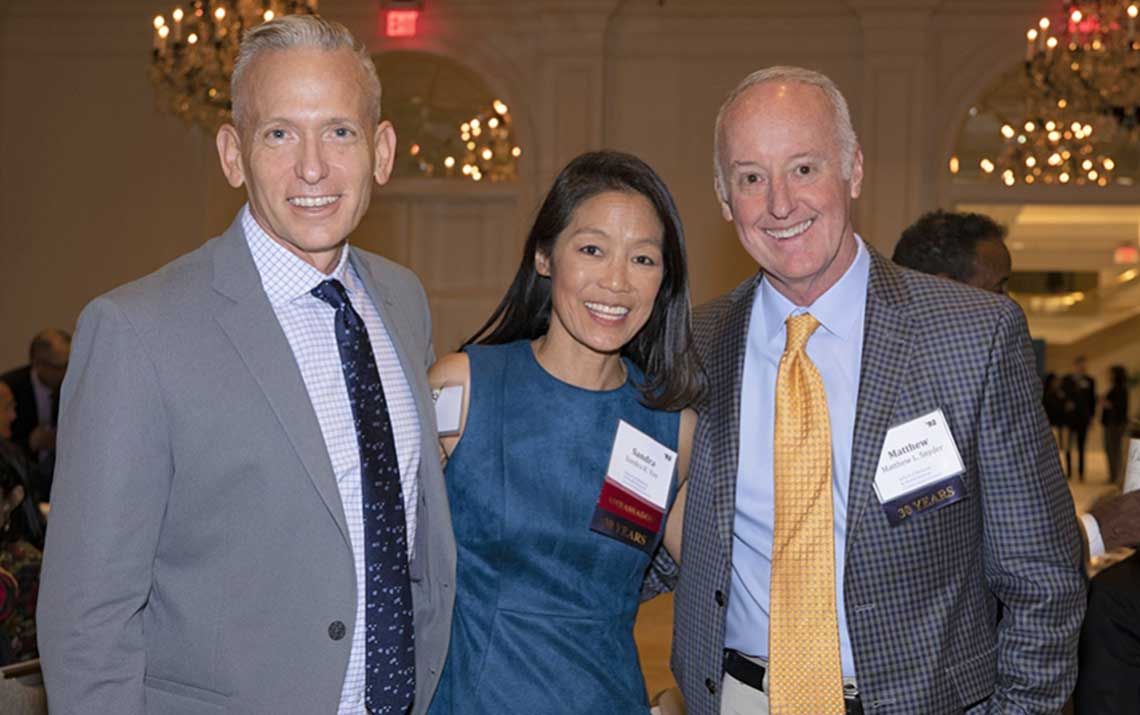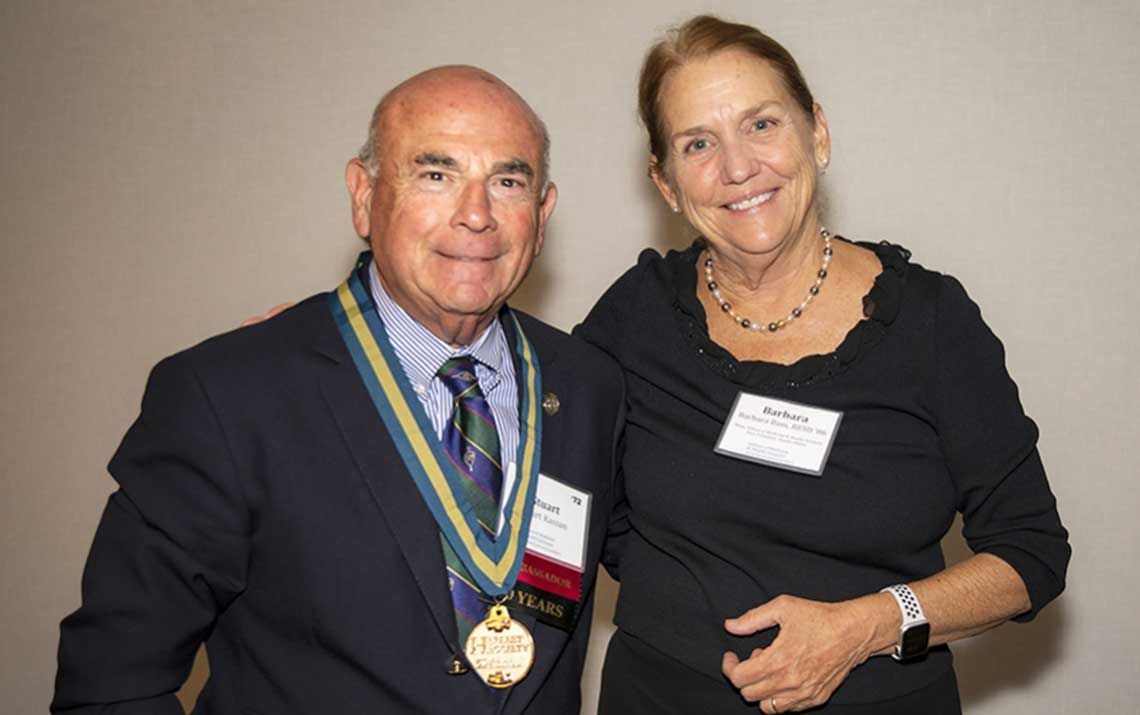Reunion Weekend brought back 182 George Washington University (GW) School of Medicine and Health Sciences (SMHS) alumni from 10 MD program graduation classes to celebrate major anniversary milestones from 10 to 50 years — 1972, 1977, 1982, 1985, 1986, 1987, 1992, 1997, 2002, and 2012 — as well as H Street Society members who already marked their golden anniversary. The alumni and their families on hand for the celebration had an opportunity to reconnect at multiple campus tours and social gatherings, as well as a pair of endowed lectures, and finally to get a recap of major events taking place at GW SMHS as well as a vision for the future.
The celebration began Thursday, Oct. 6, with the annual Stuart S. Kassan, MD ’72 Endowed Lecture in Rheumatology, featuring S. Louis Bridges Jr., MD, PhD, physician-in-chief and chair of the Department of Medicine at Hospital for Special Surgery, as well as chief of the Division of Rheumatology at both HSS and New York-Presbyterian/Weill Cornell Medical Center.
The Kassan Lecture Series, which began in 2018 and is hosted by the Division of Rheumatology, enhances rheumatology research at GW by establishing academic collaborations between GW faculty and world-renowned experts. Stuart Kassan, MD, ’72, the Distinguished Clinical Professor of Medicine at the University of Colorado-Denver School of Medicine, endowed the lecture series to grow rheumatology research at GW.
“It is very difficult to summarize in a few words all the work that Dr. Bridges has done over the years for the advancement of rheumatology,” said Rodolfo Curiel, MD, division director for rheumatology at the GW Medical Faculty Associates (GW MFA), in his introduction. “Rheumatoid arthritis has been the focus of his career. He has contributed to groundbreaking clinical and basic research that is helping us to better understand the pathogenesis of rheumatoid arthritis, especially in African Americans.”
A noted expert on the cellular, molecular, and genetic molecular mechanisms that underlie rheumatoid arthritis (RA), Bridges presented “Genetics and the Environment in Rheumatoid Arthritis.” He recounted some challenges uncovered in his research that led to the development of the Consortium for the Longitudinal Evaluation of African Americans with early RA (CLEAR) Registry.
According to Bridges, large-scale genetic association studies have identified over 20 RA risk alleles, or genetic pairs, among individuals of European ancestry. The influence of these risk alleles, however, has not been comprehensively studied within the Black and African American communities.
“The premise that we were looking for,” said Bridges, “was whether there were protective factors [for RA] among African Americans.”
As a community, he continued, “African Americans have been underrepresented in medical research. In Alabama, 19% of the population is African American, but we really do not have a ton of data about African Americans specifically. We don’t have good epidemiological data on what the incidence or prevalence is of RA … so we started to clear registry.”
The opening day of Reunion Weekend featured another endowed lecture, the 11th Annual Frank N. Miller Lecture, named for Frank N. Miller, MD ’48, BS ’43, a professor emeritus of pathology, a dean of students and curricular affairs, and a chair of the Department of Pathology at SMHS from 1944 to 1985.
“Many of you, I’ll bet, knew Dr. Frank Miller, he was a legendary professor here at GW,” said Barbara L. Bass, MD, RESD ’86, professor of surgery, Bloedorn Professor of Administrative Medicine, vice president for health affairs, dean of GW SMHS and CEO of the GW MFA, in her opening remarks. “He was a beloved teacher and professor throughout his career here, and he also held numerous leadership roles at the school and his legacy continues to have a formative impact on our educational programs.”
Presenting this year’s Miller lecture, titled “Green Chemoprevention Against Environmental Carcinogenesis: Lessons from the Field,” was Julie E. Bauman, MD, MPH, director of the GW Cancer Center, associate dean of cancer, and professor of medicine at GW SMHS.
In introducing Bauman, Dean Bass acknowledged Bauman’s recent arrival at the university in March 2022. In her search for a new GW Cancer Center Director, she said her objective was to find a “clinician, translational scientist, and the clinician trialist capable of bringing new therapies to our patients, as well as recruiting and building on that wonderful basic science investment.”
Bauman discussed her work using phytochemicals extracts — compounds produced by plants to help them resist bacteria and disease — derived from broccoli seeds and sprouts to prevent cancer.
“Epidemiology teaches us that there is this intriguing, potentially protective relationship between fruits and vegetables in the development of cancer,” Bauman explained, adding a high vegetable intake —particularly a high intake of cruciferous vegetables dark green, leafy or dark yellow vegetables such as broccoli, Brussel sprouts, kale, cabbage, cauliflower — is associated with reduced inflammation and slower tumor growth.
She added that “the idea of an intervention of broccoli or a plant-based intervention really appeals to people. There is an intuitive sense that this is something healthy to do.”
The phytochemical Sulforaphane, found broccoli sprout extract, could stimulate the detoxification of very specific carcinogens found in air pollution, according to Bauman.
How much broccoli would you have to eat to receive those potential benefits? Bauman explained that one would have to eat about 28 ounces of broccoli to get enough Sulforaphane. Broccoli seeds and in sprouts, however, have a much higher amount of Sulforaphane. “So the good news is, is that you only have to eat three ounces of broccoli sprouts to get that dose of your appetite.”
The SMHS MD Class of 1972 celebrating its 50th reunion and admission to the H Street Society. The event marked the 10-year anniversary of the society created to recognize alumni who graduated 50 or more years ago. Named after the site of the medical school until 1973, 1335 H St. NW, the society honors those distinguished alumni and aims to strengthen their connection with the GW community.
In her annual State of the School address on Saturday, Dean Bass touched on several major milestones occurring in 2022. Among those events was the opening of a new Cedar Hill Urgent Care Center in southeast Washington, D.C., in early October. The event marked the opening of the first of two urgent care centers, that, along with an ambulatory center, are part of the $403 million project includes a state-of-the-art 136-bed, Cedar Hill Regional Medical Center, GW Health.
The dean also discussed the transformative investment of $50 million to fund 14 endowed professorships, further accelerating the progress of its academic medical enterprise in one of the most significant single investments in university history to support faculty. The investment comes as a result of the proceeds from the recent sale of the university’s partnership interest in GW Hospital, which is owned by Universal Health Services, Inc.
Seema P. Kakar, MD, and her husband Sonny, to establish a new learning space for the school, the Seva Teaching Kitchen. The kitchen will be the home for in-person as well as virtual immersive hands-on cooking classes in which participants learn basic cooking skills, nutrition information, guidance for grocery shopping and recipe knowledge that helps them build a firm foundation for eating great food that just happens to be great for them.
“Investing these funds into our academic medical enterprise represents a forward stride toward our goal of being D.C.’s premier health care organization,” said the dean.
To close out the weekend — following a barbecue luncheon, tours of Ross Hall and the GW Cancer Center, and a reception, awards ceremony, and class dinners Saturday night — attendees said their goodbyes to old classmates and their alma mater with a Sunday Brunch. Each headed back to a different state or city, but with the knowledge that GW will always be there to welcome them home.
